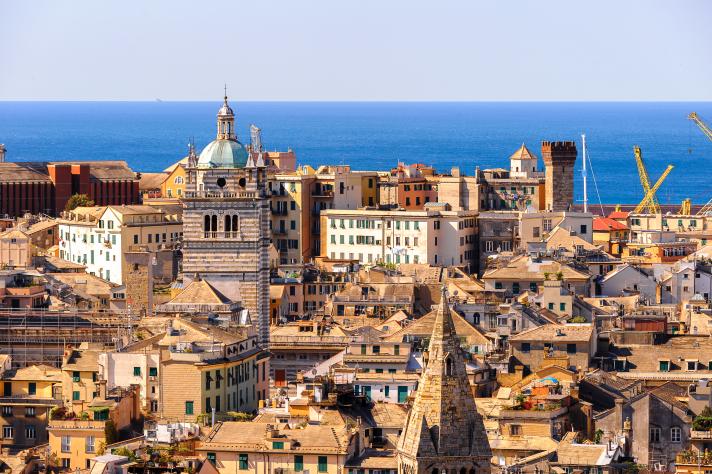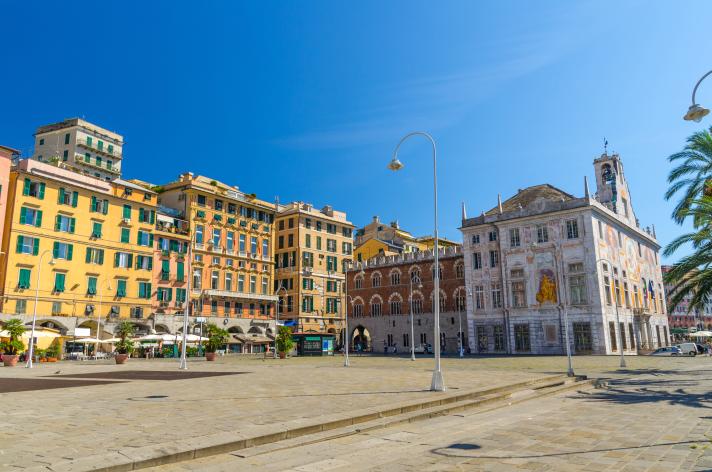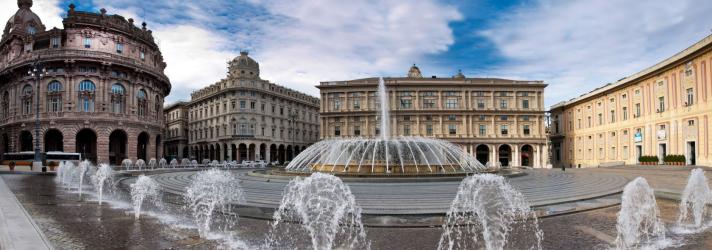Blending innovation with timeless charm
Genoa, the capital city of the region Liguria, is renowned in Italy for its magnificence palaces and architecture. For a long period, the city was an industrial and commercial hub, but has since restructured and undergone urban regeneration to restore its artistic and cultural heritage. Today, it blends innovation with timeless charm and is a growing, lively tourist and cruise destination striving to establish itself as a sustainable destination.
Accessibility in architecture
In recent years, the Municipality of Genoa has taken significant strides in redefining its approach to tourism by embracing innovative practices that prioritise accessibility and inclusivity. At the heart of this transformation is the Genoa P.E.B.A. (Plan for the Elimination of Architectural Barriers), a comprehensive initiative that was set in motion in 2016. Since its creation, the City of Genoa has been diligently working to develope smart, accessible, and environmentally sustainable mobility solutions. This initiative encompasses the expansion of pedestrian, cycling, and disabled-friendly pathways, the creation of more public spaces, and the implementation of advanced vehicle detection systems within the historic core of the city. One of the city's prime focal points is the enhancement of its waterfront experience. Notably, Genoa has dedicated significant resources in collaboration with the Municipal Council for the Disable to the removal of architectural barriers on eight municipal beaches. The project entails the construction of slope ramps on sidewalks, installation of handrails, placement of tactile maps, and the restoration of existing ramps using durable materials.
Exploring Genoa with technology
Genoa earned its reputation as a smart tourism pioneer due to the city’s early adoption of technology in the tourism sector. The city was at the forefront of digitising various aspects of the travel experience, such as online flight and hotel bookings. Since then, the municipality’s commitment to technology is demonstrated in tools like the "TourTax" web portal, which streamlines communication with around 3,000 accommodation providers. The city's tourism map is consolidated through the "Geoportale," an interactive platform full of useful information. This resource enables users to pinpoint and explore updated accommodation options registered with the TourTax portal, accessible both on desktops and mobile devices. The "Genova Outdoor" project comes equipped with essential safety information, GPS tracking, and detailed scale maps. What sets this project apart is its accessibility – all itineraries are designed to be reached and navigated using public transport and smart mobility options. Through this endeavor, Genoa aims to offer a model of cultural, sustainable, and eco-compatible tourism that aligns seamlessly with the city's digital and green identity.
Revitalising history
The National Museum of Italian Emigration (MEI) and the Museum of Natural History have embraced digitalisation, with MEI boasting impressive digital installations. The museum has 70 multimedia stations, 25 laser projectors, and over 1,300 images spread across 2,800 square meters and three floors. The recent addition of "DIGITAL MEI" has enriched the museum's digitisation efforts, providing an online platform for users to preview the exhibition itinerary and explore its 16 thematic areas through an intuitive interface.
Genoa’s revitalisation projects encompass urban regeneration, cultural preservation, and community development. Eleven squares have been revamped, historical walls have been restored, and seized properties have been repurposed for cultural and non-profit activities. Publicly-owned student residences have been established, and reduced rents have been offered to young couples and singles. The city has invested in upgrading public buildings, schools, and museums, with a focus on improving digital infrastructure. Furthermore, initiatives such as a co-housing project for victims of violence against women and an ethical hotel managed by individuals with disabilities are planned, showcasing the city's commitment to social progress.



